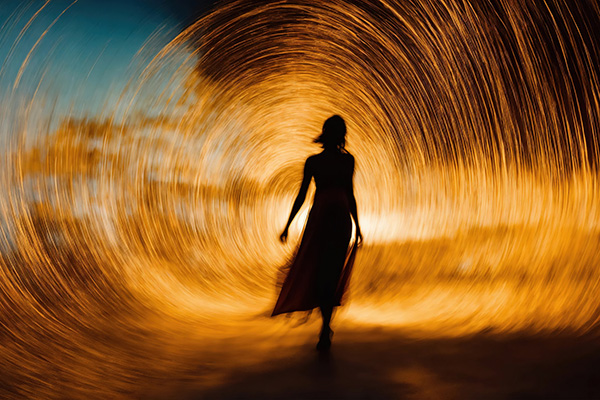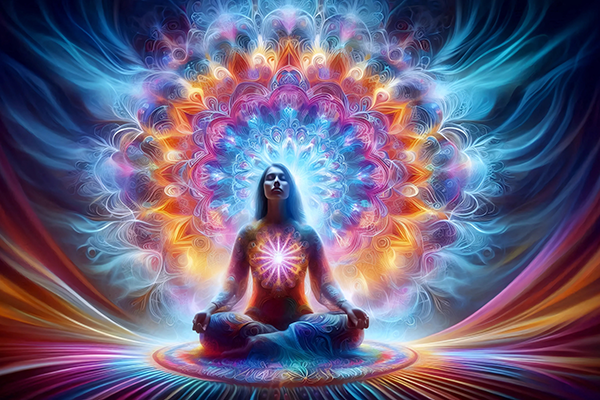trauma
The Difference Between Soul Rescue And Soul Retrieval
 In shamanic and spiritual traditions, soul recovery practices are based on the understanding that a person’s soul essence or ‘life force’ can become fragmented or lost due to trauma.
In shamanic and spiritual traditions, soul recovery practices are based on the understanding that a person’s soul essence or ‘life force’ can become fragmented or lost due to trauma.
While these two shamanic arts are closely related and often assumed to be the same practcie, they refer to different contexts of healing. There is a subtle, but key difference.
Soul retrieval is the most common term used in modern shamanism and it is based on the idea of soul loss.
When a person experiences a severe physical or emotional trauma, such as an accident, abuse, grief, or a difficult breakup, a part of their vital essence may abandon the body to survive the experience. This is essentially a spiritual survival mechanism, similar to dissociation in psychology.
This disassociation might be related to the trauma of a car accident or extreme injury, or perhaps a memory of a time in someone’s life when an attribute of their soul felt threatened or fearful.
Other typical examples include physical, sexual or emotional abuse as a child; a feeling of abandonment after the death of a relative; financial ruin; nearly dying; or loss of a job.
Someone suffering from this kind of soul loss might feel “spaced out,” numb, incomplete, or like they are watching their life from the sidelines. Chronic depression or a sense that “I haven’t been the same” since the traumatic event are common indicators.
Take Out The Toxic Trash With A Self-Love Meditation
 I’ve been teaching meditation for over 30 years now, and it is something that has been widely misunderstood. It has also been hijacked by people with nefarious, materialistic agendas.
I’ve been teaching meditation for over 30 years now, and it is something that has been widely misunderstood. It has also been hijacked by people with nefarious, materialistic agendas.
Meditation is not about emptying the mind or having no thoughts. Rather, it is about removing and replacing negative thoughts, repetitive patterns, abusive programming from childhood, and conditioning imposed by sadistic or wounded individuals.
Meditation is about inviting God, Spirit, Source, the Divine back into the heart, soul, and mind.
When we are children, everything begins with love. Children are eternal optimists, even when they have been traumatized.
But almost every child encounters at least one parent, relative, teacher, classmate, or authority figure who is abusive. These individuals attempt to rid themselves of their own overflowing toxicity by dumping it onto others: verbally, emotionally, or physically. Their words become programming, much like a computer virus.
Meditation is designed to replace that negative programming. Instead of hearing “you are worthless” looping in your mind, meditation allows you to consciously replace that tape with “I am loved.”
Think about the hurtful words that were spoken or screamed at you as a child. Then, during meditation, repeat the opposite.
Embracing Growth Challenges In Your Relationship
 At some point in a romantic relationship, we all face challenges that test our connection with our partner or spouse. People disagree, make mistakes, and experience conflict. It’s human nature.
At some point in a romantic relationship, we all face challenges that test our connection with our partner or spouse. People disagree, make mistakes, and experience conflict. It’s human nature.
However, it is important to realize that most problems in a developing relationship are often not inherently negative or catastrophic. Instead, they present valuable opportunities for personal growth, healing, and self-discovery.
If you believe that your happiness in a relationship depends on finding the perfect partner, it’s time for a new perspective. The key to a happy relationship is to remove personal barriers one at a time. By doing so, you can fully immerse yourself in love and become a magnet for attracting the right partner into your life.
Consider the following five common issues that many new couples face and how you can learn from them to foster a stronger, more fulfilling connection with your significant other.
The Happiness Myth
Some people go into a new relationship expecting their partner to bring them the complete state of happiness, joy, and fulfillment they have always sought. But others cannot make us happy, joyful, or fulfilled because achieving this is always an inside job. It starts with us.
Honoring Yourself In Difficult Family Relationships
 Family dynamics can be tremendously complex for many of us. These relationships are multilayered and deeply ingrained, often playing out across generations.
Family dynamics can be tremendously complex for many of us. These relationships are multilayered and deeply ingrained, often playing out across generations.
Many of my clients seek psychic insight about family matters. After matters of love and romance, and then business or career, family is often the most emotionally charged subject.
In readings, especially with empaths, intuitives, and highly sensitive individuals, I hear countless stories of family pain. Many carry a sense of never belonging, of being misunderstood or scapegoated.
These emotional burdens are often the heaviest that people bear because they are tied to the people they loved first and still love, despite the hurt.
When control or finances are interwoven into the family structure, the complexity of these relationships multiplies.
For many, family represents a love-hate relationship or a deep bond that carries deep wounds. While we cannot choose our family, we do have a say in how we interact with them, how we respond, and whether we continue to engage.
Severing family ties is a significant and often heartbreaking decision that is never taken lightly. By the time someone considers taking this step, the drama or emotional abuse has often been ongoing for decades and is sometimes rooted in a vividly painful childhood.
How She Found Her Way Back
 Not every psychic reading begins in light. Some start in silence — the kind that weighs heavy in the heart.
Not every psychic reading begins in light. Some start in silence — the kind that weighs heavy in the heart.
When she first reached out to me, her question was brief, but the energy spoke volumes. There was pain behind her words, and she barely dared to ask: “Am I still in here somewhere?”
She had been in a relationship that, at first, felt exciting—perhaps even fated. “He swept me off my feet,” she once said. “I thought he saw me.”
And maybe he did, in the beginning — just enough to mirror back what she most longed to believe about herself. That she was worthy. That she was seen. That she was loved. But what unfolded was far from love.
The charm that once made her feel chosen gradually twisted into control, criticism, and a subtle erosion of her spirit. What looked like affection became possessiveness. What felt like closeness became confinement.
She had once been a vibrant, creative soul bursting with ideas and dreams.
But as time passed, she began to disappear. “I used to feel like a magical flame,” she confessed. “Now, I’m no more than a tiny heap of ashes under his tyranny.” Her sparkle had dulled. Her job unraveled. Her friendships faded.
But then she called me on Psychic Access and the runes reminded her that the embers of her true self and soul essence were still burning.
The Transformative Power Of Finding Your Faith
 Faith is deeply personal and means different things to different people. It can take many forms, such as spiritual faith in a higher power, personal faith in one’s abilities, or faith in the people and principles that shape our lives.
Faith is deeply personal and means different things to different people. It can take many forms, such as spiritual faith in a higher power, personal faith in one’s abilities, or faith in the people and principles that shape our lives.
For some, faith is a guiding force that offers comfort and meaning. For others, it’s a leap into the unknown, choosing hope over doubt. It can be rooted in a religious tradition, philosophical principle, esoteric teaching, or the simple belief that tomorrow holds possibilities unseen today.
Whatever our beliefs, faith is an intense and often unshakable certainty in those beliefs despite the absence of proof. To me, faith is a powerful, transformative force. When embraced, it offers immeasurable strength in the face of life’s challenges.
When I was young, I struggled to grasp the concept of faith. I never doubted the existence of a creator. I never doubted an afterlife or the presence of spirits in our lives. Perhaps this was due to my innate sensitivity to energies and spiritual disposition. I moved through life guided by intuition.
Yet despite my spiritual grounding, my faith was tested repeatedly, especially through experiences of trauma and loss.
I wrestled with questions of purpose and fairness. I couldn’t accept the idea of a cruel or indifferent creator who randomly punished or rewarded people.
Embracing The Shadow Within
 When I first began to intentionally and consciously walk a spiritual path, I remember doing so because it just felt so right. Every step I took toward ‘enlightenment’ in this lifetime seemed to bring more brightness into my life, and so many more blessings.
When I first began to intentionally and consciously walk a spiritual path, I remember doing so because it just felt so right. Every step I took toward ‘enlightenment’ in this lifetime seemed to bring more brightness into my life, and so many more blessings.
In those early days I was really rolling! I was expecting this to be an easy ride – all joy and light and love. It was wonderful.
What I hadn’t expected was the inevitable emergence of my shadow through as a result of all my spiritual work. And it was not something I was going to be comfortable with – admitting I had places of darkness within me, unloved aspects of myself, disowned pieces of my soul which had been abandoned and in such pain.
Through a series of, what seemed like, unfortunate events, I was given opportunities to face my shadow side. Challenges in relationships with friends and loved ones arose. I couldn’t understand it at first, and felt very alone and misunderstood. I was shifting the blame for this onto the people around me, instead of going inward.
Going inward, into the light, was totally okay, but going inward into the darkness was terrifying. My ego-self raised every defense to keep me from going there. Eventually, I could avoid it no longer.
My life at this point had endured tremendous change in the course of only a few years- so much so, that the entire landscape of my existence and the people in it were now different. While many of the changes were positive, the magnitude of the differences between my ‘old life’ and my ‘new life’ forced me into robust self-reflection.